PAINTING: The Annunciation by Henry Ossawa Tanner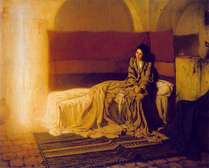
Before the world was made, he chose us: he chose us in Christ, to be holy and spotless, and to live through love in his presence.
Ephesians 1,4
In the Roman Catholic calender, today is the feast of the Immaculate Conception of Mary. Sometimes confused with the virgin birth of Jesus, it celebrates Mary’s conception without original sin, the human condition that inclines us to do what we know we shouldn’t and not do what we know we should. I admit that I have never found this particular feast compelling; the explanation of “being free from the stain of original sin” sounds esoteric and, well, odd. I never could get into the “stain of original sin” language. I read something on the Universalis website that helped me begin thinking about this feast in a new way.
I used an image of the annunciation on today’s post for two reasons. First, this is the season to ponder the birth of Christ, and Mary’s “yes” to the impossible reality proposed to her by the angel Gabriel was the beginning of that. Second, Mary would have needed extraordinary grace to respond as she did to the knowing she experienced: She had faith that she was not imagining such a thing (who could?), and she willingly assented to the plan which would change her life in ways she could not imagine as well as in a few that she could.
Mary would have known that few would believe her story when she turned up pregnant before she should have. Such an offense could mean death, and if not, it could mean the end of her relationship with Joseph and with her people. Yes, Mary needed tremendous grace, and if that is what the Immaculate Conception is about, then it is meaningful to me.
The reading for today from Morning Prayer and is a short excerpt taken from the Second reading at Mass. Mary was chosen from the moment of her conception for her unique role in salvation history. Through her openness to God’s call, Jesus became one of us and lived his life and died his death to reveal to us that we, too, are chosen. Each one of us. Through Christ we have the special grace to enable us to say, “yes” to the life we have and to God’s working in it.
Like Mary’s “Yes,” ours is not to aggrandize ourselves but to participate in God’s entrance into the world in fresh ways, to continue the Incarnation.
©2010 Mary van Balen

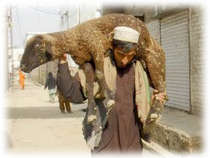 He is like a shepherd feeding his flock,
He is like a shepherd feeding his flock,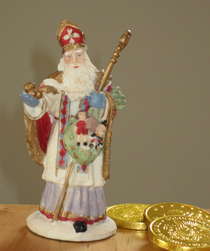
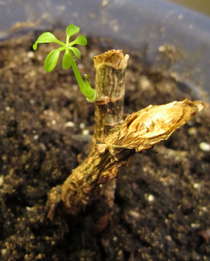

 Let’s allow ourselves to share in the glorious vision of a peaceable kingdom where people get along and the Holy One fills everything with Love. Being able to imagine something so wonderful is a step toward allowing it to happen.
Let’s allow ourselves to share in the glorious vision of a peaceable kingdom where people get along and the Holy One fills everything with Love. Being able to imagine something so wonderful is a step toward allowing it to happen. 
 And when he saw the crowds he felt sorry for them because they were harassed and dejected, like sheep without a shepherd. Then he said to his disciples, The harvest is rich but the laborers are few, so ask the Lord of the harvest to send laborers to his harvest.
And when he saw the crowds he felt sorry for them because they were harassed and dejected, like sheep without a shepherd. Then he said to his disciples, The harvest is rich but the laborers are few, so ask the Lord of the harvest to send laborers to his harvest.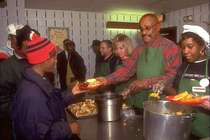 Who wouldn’t be overwhelmed? Easier to stay home cocooned in one’s close circle of family and friends and let the world fend for itself. We have enough problems of our own. After all, what difference can one person make?
Who wouldn’t be overwhelmed? Easier to stay home cocooned in one’s close circle of family and friends and let the world fend for itself. We have enough problems of our own. After all, what difference can one person make?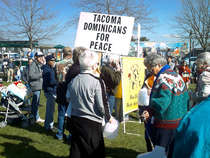 Where is integrity? Leaders who are looking out for the poor? Tax breaks for millionaires? Cut backs in programs that provide for the most vulnerable? Stalling on nuclear arms treaties?
Where is integrity? Leaders who are looking out for the poor? Tax breaks for millionaires? Cut backs in programs that provide for the most vulnerable? Stalling on nuclear arms treaties?  I know the plans I have in mind for you it is the Lord who speaks plans for peace, not disaster, reserving a future full of hope for you. When you seek me you shall find me, when you seek me with all your heart. (from Mid-morning reading, Terce – Jeremiah 29:11,13)
I know the plans I have in mind for you it is the Lord who speaks plans for peace, not disaster, reserving a future full of hope for you. When you seek me you shall find me, when you seek me with all your heart. (from Mid-morning reading, Terce – Jeremiah 29:11,13)  Be patient, brothers, until the Lords coming. Think of a farmer: how patiently he waits for the precious fruit of the ground until it has had the autumn rains and the spring rains! You too have to be patient; do not lose heart, because the Lords coming will be soon. The Judge is already to be seen waiting at the gates.James 5:7-8,9
Be patient, brothers, until the Lords coming. Think of a farmer: how patiently he waits for the precious fruit of the ground until it has had the autumn rains and the spring rains! You too have to be patient; do not lose heart, because the Lords coming will be soon. The Judge is already to be seen waiting at the gates.James 5:7-8,9 “On this mountain the Lord of hosts will make for all peoples a feast of rich food…And he will destroy on this mountain the shroud that is cast over all peoples…Then the Lord God will wipe away tears from all faces…Let us be glad and rejoice in his salvation for the hand of the Lord will rest on this mountain.” Is 25:6a,7a,8a9b.10 (from today;s Mass readings)
“On this mountain the Lord of hosts will make for all peoples a feast of rich food…And he will destroy on this mountain the shroud that is cast over all peoples…Then the Lord God will wipe away tears from all faces…Let us be glad and rejoice in his salvation for the hand of the Lord will rest on this mountain.” Is 25:6a,7a,8a9b.10 (from today;s Mass readings) Jesus was walking along the sea of Galilee and saw two fishermen casting their nets out for a catch. He called to them and asked them to leave their nets and follow him and he would make them fishers of men.
Jesus was walking along the sea of Galilee and saw two fishermen casting their nets out for a catch. He called to them and asked them to leave their nets and follow him and he would make them fishers of men. Unexpected activity on the homefront resulted in my arriving late for Mass,and I walked in while the celebrant was delivering his homily.
Unexpected activity on the homefront resulted in my arriving late for Mass,and I walked in while the celebrant was delivering his homily.